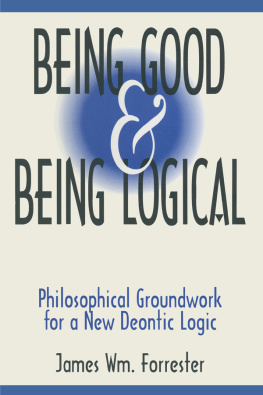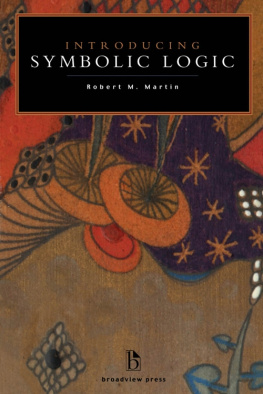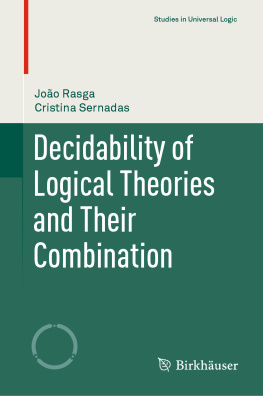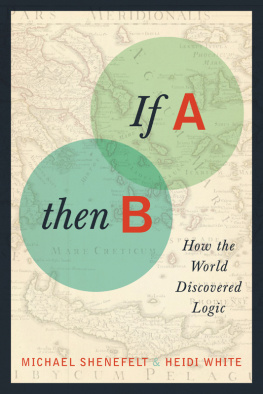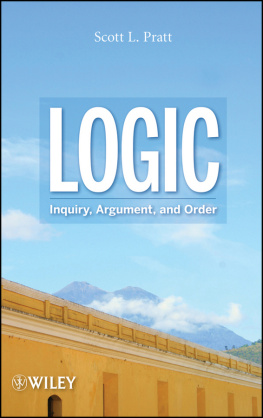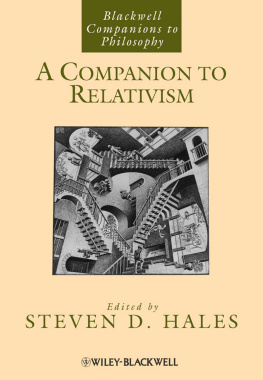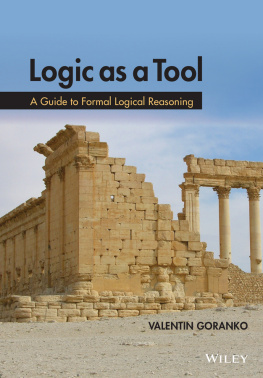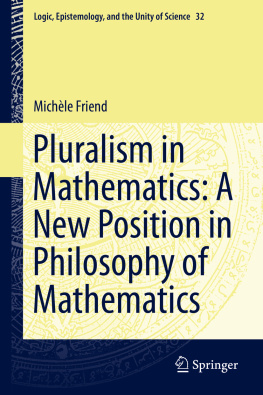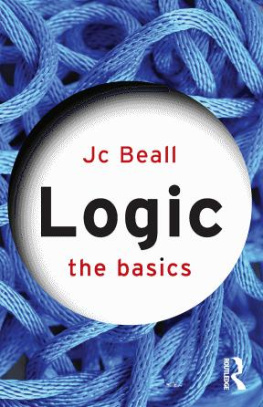Stewart Shapiro - Varieties of Logic
Here you can read online Stewart Shapiro - Varieties of Logic full text of the book (entire story) in english for free. Download pdf and epub, get meaning, cover and reviews about this ebook. year: 2014, publisher: OUP Oxford, genre: Romance novel. Description of the work, (preface) as well as reviews are available. Best literature library LitArk.com created for fans of good reading and offers a wide selection of genres:
Romance novel
Science fiction
Adventure
Detective
Science
History
Home and family
Prose
Art
Politics
Computer
Non-fiction
Religion
Business
Children
Humor
Choose a favorite category and find really read worthwhile books. Enjoy immersion in the world of imagination, feel the emotions of the characters or learn something new for yourself, make an fascinating discovery.

- Book:Varieties of Logic
- Author:
- Publisher:OUP Oxford
- Genre:
- Year:2014
- Rating:4 / 5
- Favourites:Add to favourites
- Your mark:
Varieties of Logic: summary, description and annotation
We offer to read an annotation, description, summary or preface (depends on what the author of the book "Varieties of Logic" wrote himself). If you haven't found the necessary information about the book — write in the comments, we will try to find it.
better, are cluster concepts. The notions can be sharpened in various ways. This explains away the debates in the literature between inferentialists and advocates of a truth-conditional, model-theoretic approach, and between those who advocate higher-order logic and those who insist that logic is first-order.
A significant kind of pluralism flows from an orientation toward mathematics that emerged toward the end of the nineteenth century, and continues to dominate the field today. The theme is that consistency is the only legitimate criterion for a theory. Logical pluralism arises when one considers a number of interesting and important mathematical theories that invoke a non-classical logic, and are rendered inconsistent, and trivial, if classical logic is imposed. So validity is relative to a
theory or structure.
The perspective raises a host of important questions about meaning. The most significant of these concern the semantic content of logical terminology, words like or, not, and for all, as they occur in rigorous mathematical deduction. Does the intuitionistic not, for example, have the same meaning as its classical counterpart? Shapiro examines the major arguments on the issue, on both sides, and finds them all wanting. He then articulates and defends a thesis that the question of
meaning-shift is itself context-sensitive and, indeed, interest-relative. He relates the issue to some prominent considerations concerning open texture, vagueness, and verbal disputes.
Logic is ubiquitous. Whenever there is deductive reasoning, there is logic. So there are questions about logical pluralism that are analogous to standard questions about global relativism. The most pressing of these concerns foundational studies, wherein one compares theories, sometimes with different logics, and where one figures out what follows from what in a given logic. Shapiro shows that the issues are not problematic, and that is usually easy to keep track of the logic being used and
the one mentioned.
Stewart Shapiro: author's other books
Who wrote Varieties of Logic? Find out the surname, the name of the author of the book and a list of all author's works by series.

